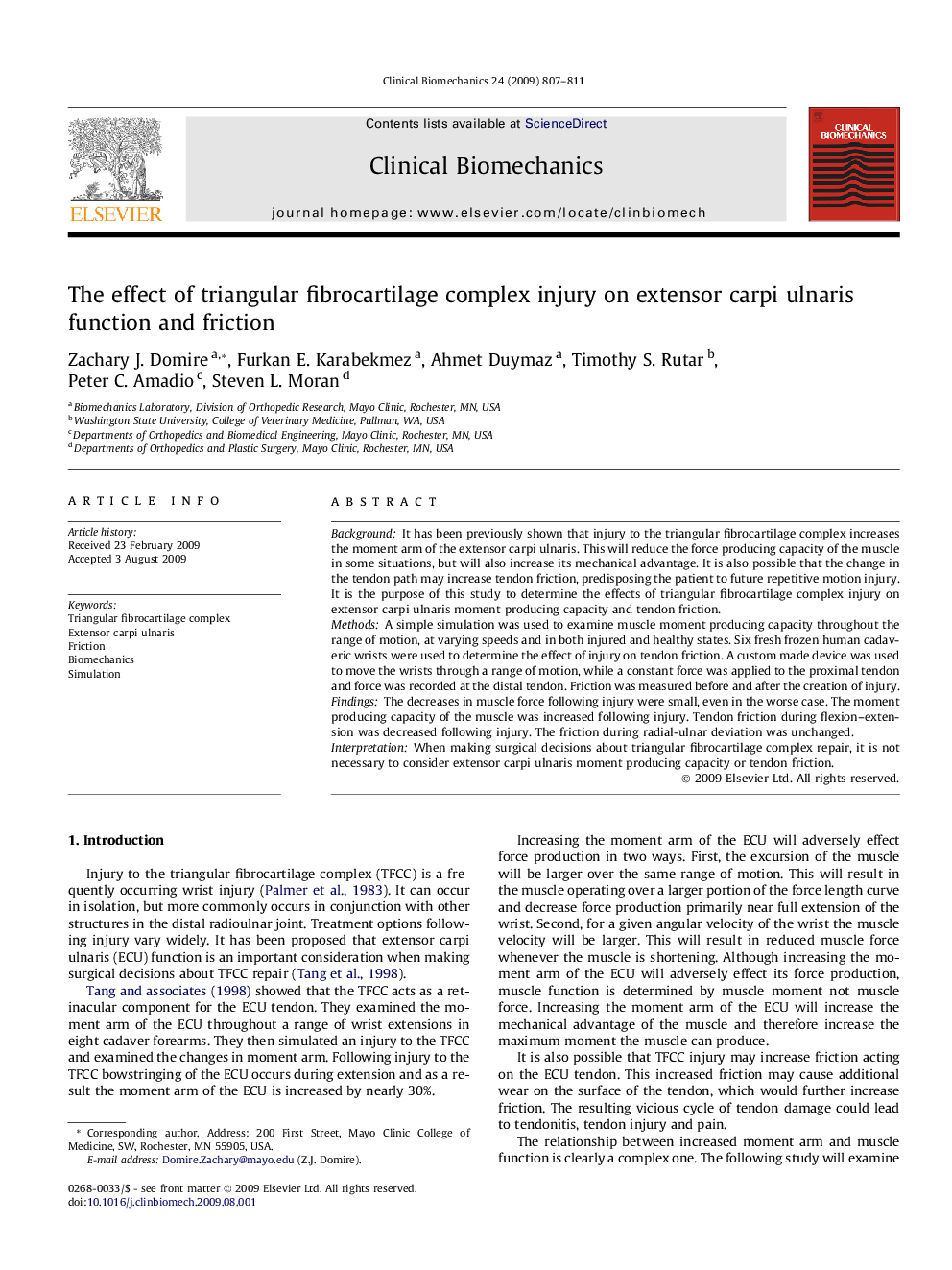| Article ID | Journal | Published Year | Pages | File Type |
|---|---|---|---|---|
| 4050677 | Clinical Biomechanics | 2009 | 5 Pages |
BackgroundIt has been previously shown that injury to the triangular fibrocartilage complex increases the moment arm of the extensor carpi ulnaris. This will reduce the force producing capacity of the muscle in some situations, but will also increase its mechanical advantage. It is also possible that the change in the tendon path may increase tendon friction, predisposing the patient to future repetitive motion injury. It is the purpose of this study to determine the effects of triangular fibrocartilage complex injury on extensor carpi ulnaris moment producing capacity and tendon friction.MethodsA simple simulation was used to examine muscle moment producing capacity throughout the range of motion, at varying speeds and in both injured and healthy states. Six fresh frozen human cadaveric wrists were used to determine the effect of injury on tendon friction. A custom made device was used to move the wrists through a range of motion, while a constant force was applied to the proximal tendon and force was recorded at the distal tendon. Friction was measured before and after the creation of injury.FindingsThe decreases in muscle force following injury were small, even in the worse case. The moment producing capacity of the muscle was increased following injury. Tendon friction during flexion–extension was decreased following injury. The friction during radial-ulnar deviation was unchanged.InterpretationWhen making surgical decisions about triangular fibrocartilage complex repair, it is not necessary to consider extensor carpi ulnaris moment producing capacity or tendon friction.
